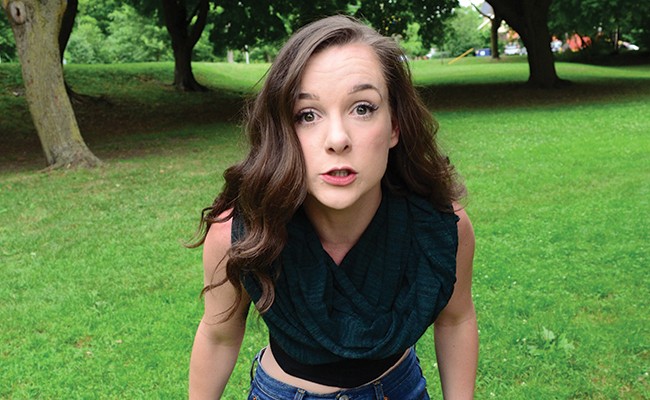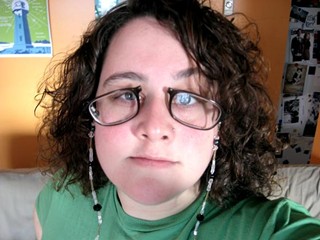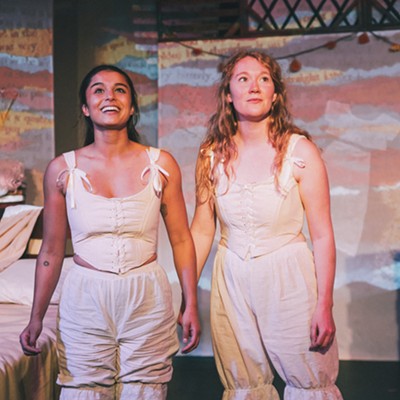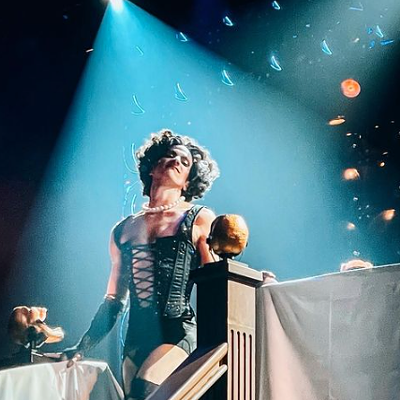Thu Sep 6, 7pm; Fri Sep 7, 6pm; Sat Sep 8, 11am & 10pm; Sun Sep 9, 12:30pm
The Waiting Room, 6040 Almon Street $10/$7
Veronica Steele and Charlotte Weeks have spent the summer driving from London, Ontario with their show Wicked Fountain of Youth, a portrait of a teenager (Weeks) with fetal alcohol syndrome. Fresh off an Audience Award win at the Fundy Fringe in Saint John, the pair is literally camping out in Dartmouth Crossing—after their billet fell through, they set up a tent in Shubie Park. "We walked over the footbridge and got Swedish meatballs the other day," says Steele from the IKEA-adjacent campsite.
Based on Steele's experiences with her stepdaughter, who has FAS, Wicked Fountain of Youth gives Weeks a nearly hour-long monologue through one girl's life with a bad mother who's always on the run or leaving her with abusive men, resulting in a life of petty crime, arson and destruction. When we meet her, she's reconnected with her dad, trying to adjust to a more even-keeled life.
There's a single line near the end where Weeks says if you see a pregnant woman drinking alcohol, take it away. Steele is fine with the brief but direct messaging. "We had a dramaturge work with us, he was from Toronto. He said it was a good portrayal of a person with the disorder—and we had a hint that you shouldn't drink while you're pregnant—but it seemed like we were tiptoeing around what we wanted to say. 'You need to not be afraid of that.' He gave us permission to just say what we wanted to say. People aren't going around saying you can't call people murderers when they kill people because it might hurt their feelings."
Halifax' reactions to the show—a true feat of performance from Weeks—have varied. "Every audience is different. Yesterday we got lots of laughs. Other times it's very quiet," says Steele. "They're so cautious—it's like, this person has a disability, am I being insulting if I laugh? I try to include the funny moments because otherwise it's such a tragedy.
"There's an optimism on the part of the character—you can see how her choices are getting her into big trouble, but I wanted people to understand that when you see people that are acting outside the norm, they have a rational reason, to them, for what they're doing."















